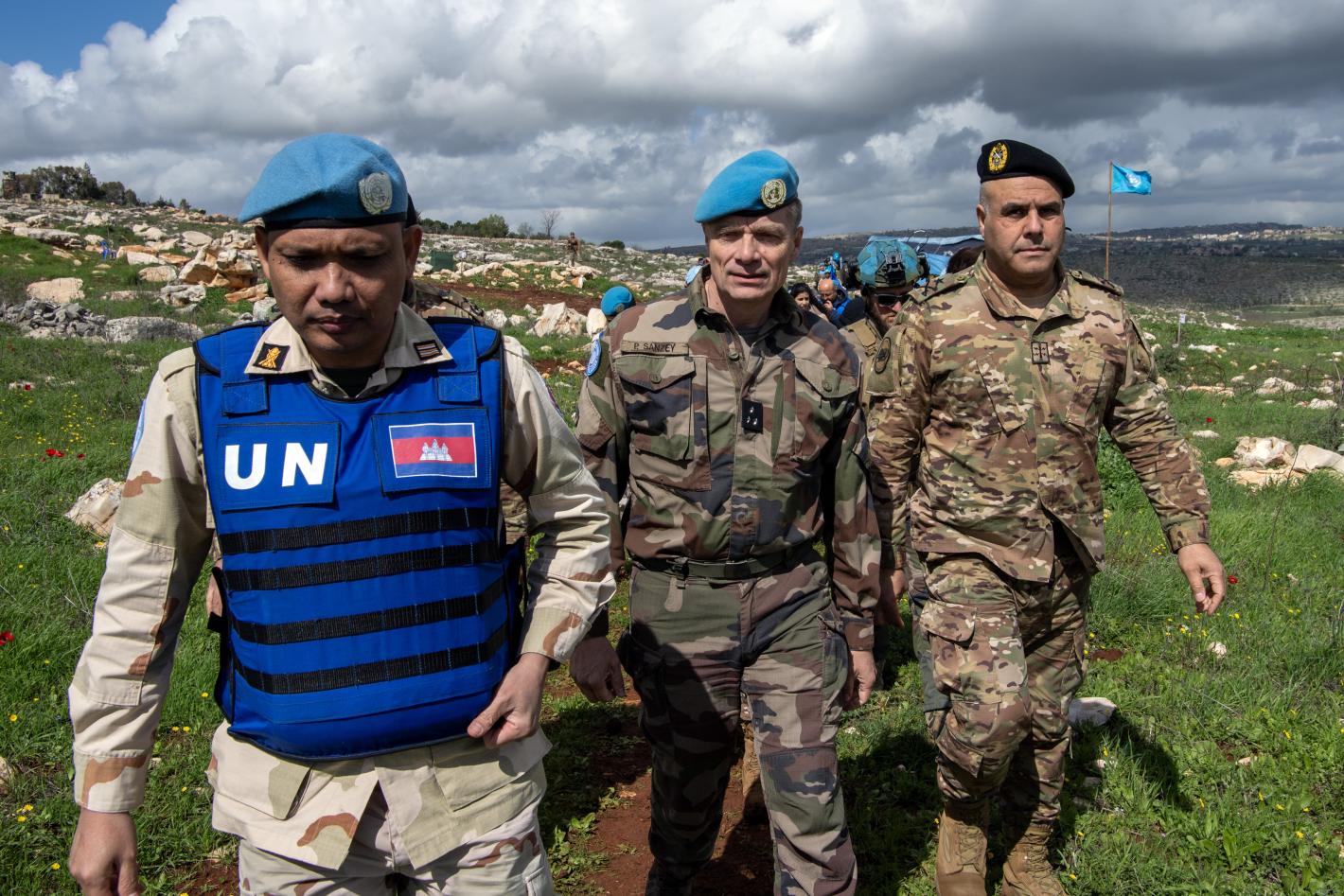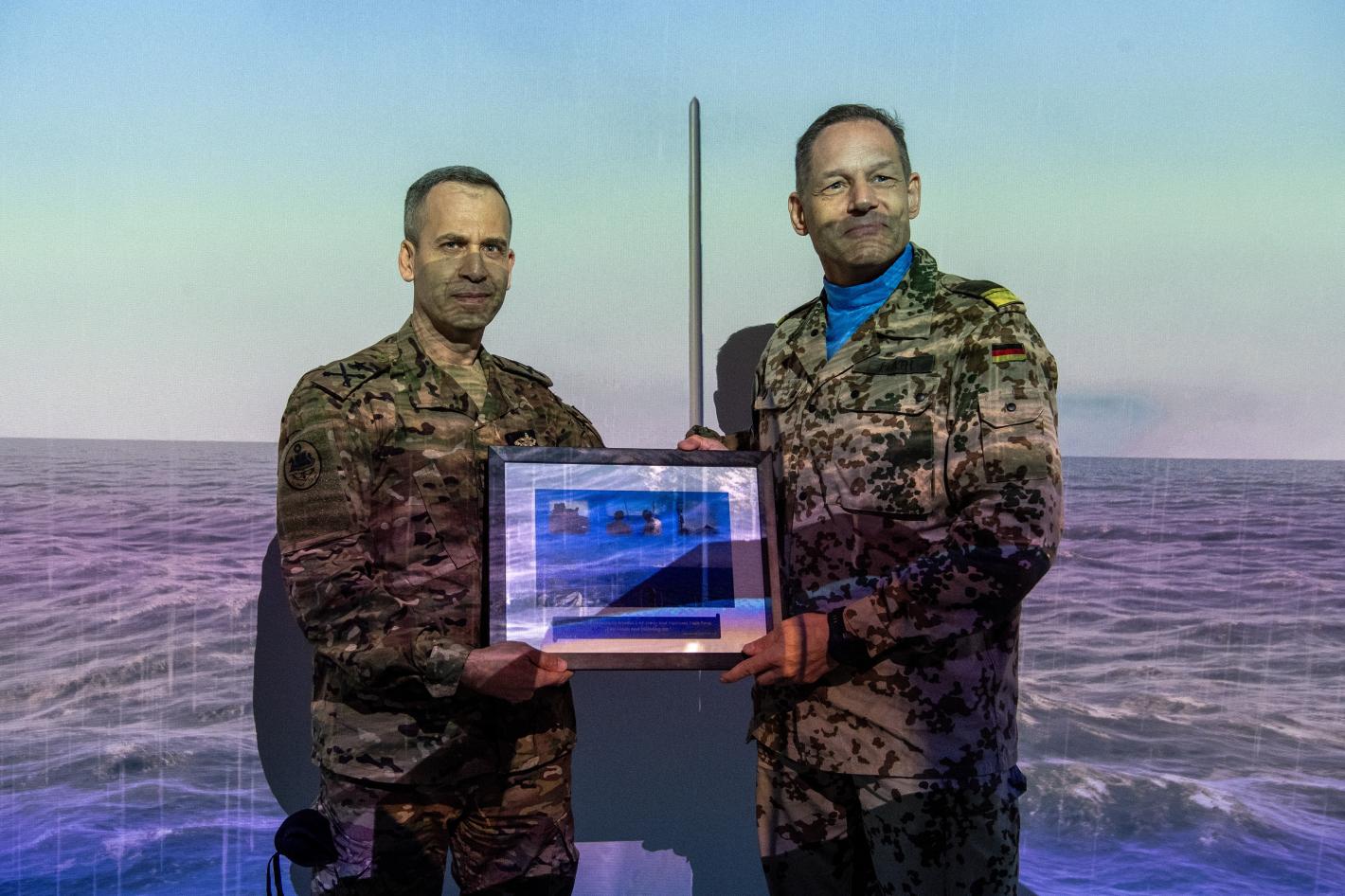In early April this year, as cases of COVID-19 Coronavirus spiked world over, the United Nations Secretary-General António Guterres suspended all rotations of uniformed peacekeeping personnel until 30 June 2020. This robust measure was strategically taken in order to mitigate the risk of transmission of COVID-19 pandemic and to allow additional time for the UN globally to define an emergency policy for rotations and associated mitigation measures.
Craig Goodwin, the Head of UNIFIL’s Crisis Working Group on the Mission’s response to the COVID-19 Coronavirus pandemic, explained the main decision to postpone the rotation of peacekeepers as a step into the right direction.
“One of our main concerns, at the direction of UNIFIL Force Commander and Head of Mission has been to not only protect ourselves, but to protect Lebanon while continuing to deliver on our mandate, and we were given directions and guidelines from United Nations Headquarters in New York, that we had to put on hold these rotations,” he said.
From all the peacekeeping missions in the world, UNIFIL was among one of the missions that had requested a few exemptions to the full suspension of the rotations in order to mitigate the operational impact of the rotations and maintain operational capabilities. Therefore, a UNIFIL Summer 2020 Rotation Plan was put in place by UNIFIL Head of Mission and Force Commander Stefano Del Col, which encompassed general rotation, repatriation and deployment of UNIFIL military components.
“The main objective of this plan was to ensure an efficient and smooth rotation, repatriation and deployment of around 6,000 personnel into and out of the UNIFIL Area of Operations (AO),” explained the Chair of UNIFIL’s Crisis Working Group.
As part of this special rotation plan, and to ensure that strict quarantine of incoming personnel into the mission was properly done, a special rotation Verification Team (VT) was formed to check the proper and strict adherence of quarantine rules in all UNIFIL compounds during the rotation process.
Mr. Goodwin added that UNIFIL swiftly formed a technical inspection and verification team, headed by the Deputy Force Commander (Brig. Gen. Irvine Nii-Ayitey Aryeetey), “to ensure standardization of the rotation requirements and guidelines given by the Headquarters to conduct general appraisal of unit’s continued compliance with COVID-19 preventive measures.”
Identifying any gaps in the requirements was extremely important. “You can imagine all the different contingents coming from different countries and cultures with different self-sustained mechanisms,” Mr. Goodwin added.
With robust precautionary measures taken by the Mission in order to protect its personnel and the host communities from the scourge of the common enemy, the Coronavirus, the partial resumptions of uniformed personnel rotations began in mid-June 2020, following strict national and international protocols to prevent the virus spread.
“What makes this rotation different and mostly challenging from others is that because of a strict quarantine system for incoming and outcoming troops, we had to transport our peacekeepers in smaller groups, which meant we had to increase our flights,” he concluded. “Usually, we would have done this in larger groups, but we had to take exceptional measures.”
All the precautionary measures including rigorous quarantine regime in accordance with WHO guidelines and Lebanese Government policies have been put in place and are been strictly followed.
Mr. Goodwin feels extremely confident in the way UNIFIL has maintained the protocols that are required. “The Ministry of Public Health has given us some exemptions to their own protocols, because ours are stricter and they are very happy with the way the Mission has approached this pandemic.”
Technical inspection and verification of UN camps
Lt Col Ernest NANBIGNE is the Team Leader of UNIFIL Rotation Verification Team. He and his team of experts have been conducting inspections of the Force Headquarters in Naqoura as well as different contingents across the Mission’s 1,060 square kilometre are of operations.
The team is deployed to ensure that during rotations, appropriate and robust precautionary measures and standard protocols have been followed.
“The main objective of our verification team is to inspect and make sure that all UN positions have been technically inspected and verified and are COVID-19 free and ready to proceed with the rotations of incoming and outgoing UNIFIL personnel,” he said.
“By taking this robust rotation verification approach, by protecting ourselves and our personnel from the risk of transmitting COVID-19,” he pointed out, “we are also protecting south Lebanon and the people we are here to serve in our host communities, while maintaining operationality and delivering on our mandate.”






